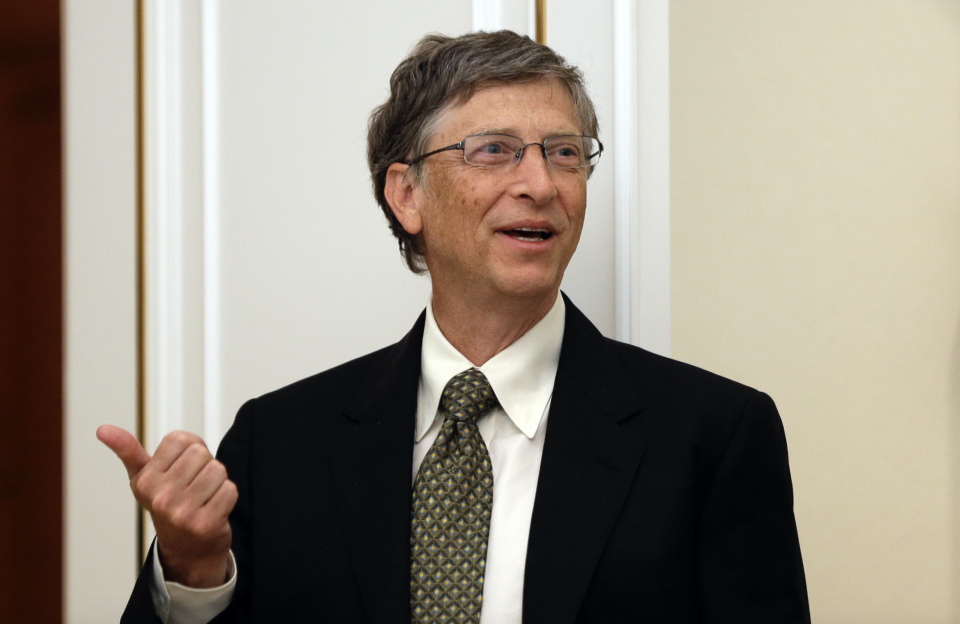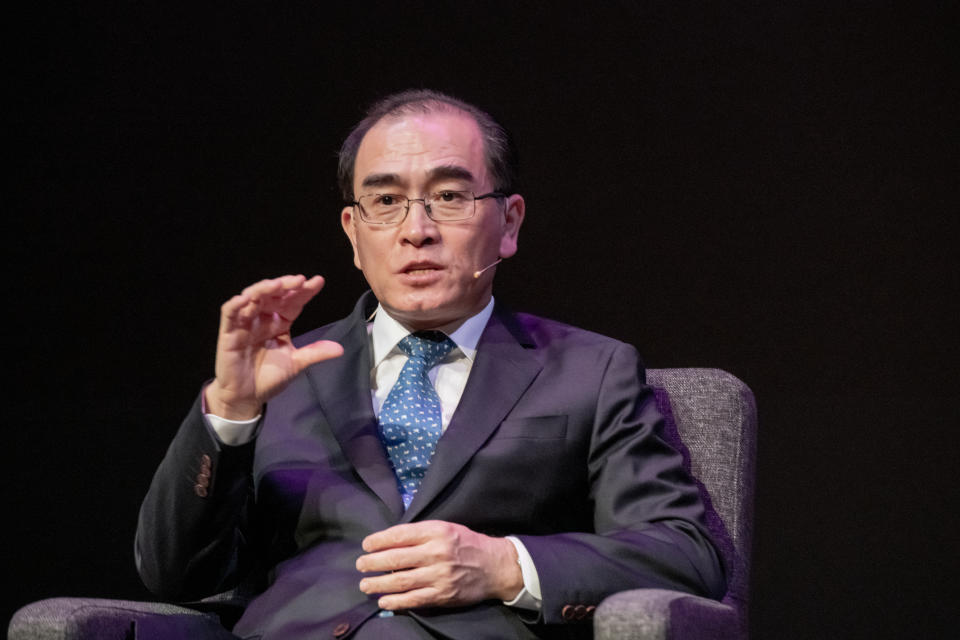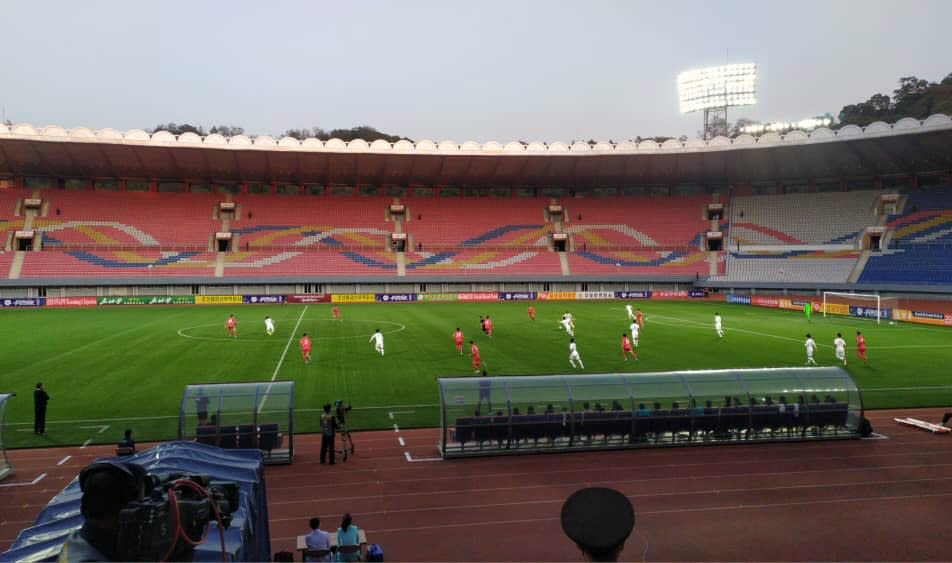North Korean defector explains why the next generation is different
Former North Korean diplomat Thae Yong-ho says there’s a generational divide over how the people in his country view the United States.
“The majority of the people in North Korea, nowadays they do not mind [the U.S.] — especially the millennials,” Thae told Yahoo Finance on the sidelines of the 2019 Oslo Freedom Forum. “The core class [holds] very strong hatred towards the U.S. … and the people [are] brainwashed, that America is always looking [to] attack ... but the millennials, these days they think differently because they were the ones who have grown up with Windows systems and Microsoft” (MSFT).
Thae, who was North Korea’s deputy ambassador to the United Kingdom, defected to South Korea in 2016. He is one of the highest-ranking officials to defect from the so-called Hermit Kingdom.
“So even though they were taught that America is their sworn enemy, everyone has computers and knowledge… they know Bill Gates,” he said, adding that North Korean millennials “are really thirsty for information. That's why they are different from their previous generations.”

Geoffrey See, founder of Choson Exchange, which is a Singapore-based non-profit group that teaches business and entrepreneurship in North Korea, echoed Thae’s sentiment, adding that he also observed a sense of adventure among the youth.
“Choson Exchange has had close to 3,000 Koreans take part in our volunteer-led training on economic policy and entrepreneurship in North Korea,” See told Yahoo Finance. “We meet younger Koreans who feel stifled working in a large state-owned enterprises, and have built small scale operations manufacturing toothpaste or trucking goods. There is a rising trend of entrepreneurship among this group.”
North Korea’s class system
Since insight into the country is rare, as data or research is not available because of how isolated the country remains, Thae’s insights offered a glimpse of what life was like on the inside. For one, society was highly fragmented by a class system.
There were three socio-political classifications that were based on North Korean citizens’ families, or their loyalty to the government, according to the Human Rights Watch’s Phil Robertson. These three groups were called the “core,” “wavering,” and “hostile” classes.

The elites, those who fought foreigners for North Korea, as well as those closest to the supreme leader, made up the core class. Peasants, laborers, and workers formed the second class. Those on the lowest rung were those who had opposed the elder Kim’s regime, or had previously worked with South Korea or Japan.
“And your life … ranging from residence, employment, education, [is] decided by the class system,” Thae explained. “I was lucky to be born into the ‘core’ class, the ruling class. That's why I was able to get [an] elite education and a good job, and I lived in Pyongyang in good apartments… [but] there is a very strict class system structure in North Korea. ... North Korea is just like the feudal dynasty of the Middle Ages.”
Despite being part of the upper echelon, Thae said he definitely wasn’t going to miss the life he left behind.
“The Kim family does not care about the human rights of individuals,” he stated. “They only care about their own interest.”
‘A lot of stupid things are taking place’
One instance, which Thae thought exemplified the backwardness of the Kim regime’s thinking, involved a soccer match.
On October 15, for the first time in three decades, the North and the South Korean men’s football teams played each other in Pyongyang. The last time they had played in a friendly match was in 1990. But while there was considerable interest from the public to watch the match, South Korean media and fans were prohibited from attending, and the game wasn’t even broadcast live, CNN reported.

“A lot of stupid things are taking place,” Thae said. “When the South Korea team played in North Korea, there was no audience in the stadium. There was no live broadcasting. There was no kind of news coverage. We are living in the 21st century, but North Korea is the only country where there is no audience in the stadium to play for the World Cup.”
Ego was definitely the reason for the decision to keep the match somewhat under wraps, Thae added.
“The South Korean team was much stronger than the North Korean team ... it was very obvious. … Kim Jong Un thinks that if North Korean team is defeated by the South, this could undermine his control or the legitimacy of North Korea,” he said. “That is the way of stupid thinking. This is sports — [in] sports [you] can win or [be] defeat[ed]... but now in North Korea, everything is related to the supreme leadership of the country. “
—
Aarthi is a writer for Yahoo Finance. Follow her on Twitter @aarthiswami.
Read more:
'They call it ice': North Korean defector details the country’s massive drug problem
'This is really quite dramatic': Cocaine is booming like never before
Juul exposed: How Big Vape took a page from Big Tobacco’s old ad playbook
The 'Cheap Date Index': Here's how much it costs to go out around the world
Read the latest financial and business news from Yahoo Finance
Follow Yahoo Finance on Twitter, Facebook, Instagram, Flipboard, SmartNews, LinkedIn, YouTube, and reddit.

